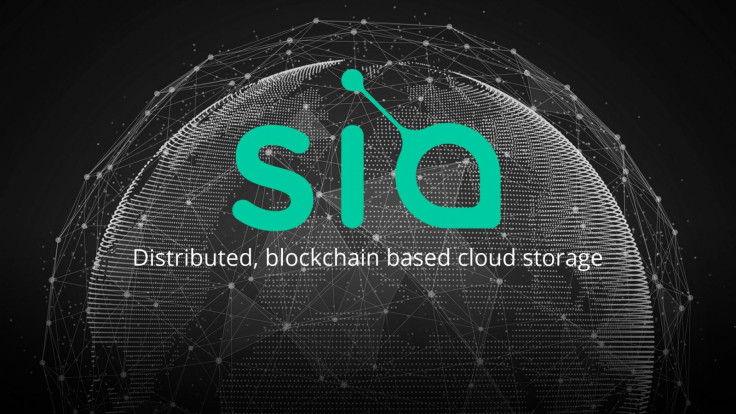Sia takes on cloud giants with blockchain-based decentralised storage
Sia founder David Vorick says Amazon stores a lot of the internet's data, and with this power comes too much responsibility.

Sia is building an enterprise-grade data storage network that is not owned or controlled by any single party.
David Vorick, who cofounded the decentralised storage start-up, believes we have to strive to ensure the internet remains a relatively borderless and free place.
He said: "Say you are a company in Russia, you're a company in China, a company in Turkey, Iraq, Iran; if you want to use cloud technology your only option is a US infrastructure provider.
"This means if the US decides to make sanction plays, economic plays, any sort of power move against your country, your infrastructure may be shut down as a result."
Vorick was taking part in a panel involving other providers of decentralised infrastructure (Blockstack) and decentralised storage solutions (Storj and IPFS), at the recent Token Summit 2017 at NYU. The panel discussed, among other topics, AWS's S3 mega-outage which for five hours crippled a large chunk of the internet.
Vorick pointed out that Amazon stores a large percentage of the internet's data, and that with this great power comes too much responsibility.
"So we want to provide infrastructure that nobody, including ourselves, has the control over, said Vorick, "something with no failure points, where there is no place of leverage and no company, country, jurisdiction, person who can decide that they don't like you or they have ulterior motives.
"And when I say decentralised that's really what I mean; I mean you can trust it to be there regardless of how the political situation evolves, or the business situation evolves; your infrastructure is going to be reliable, which gives you more freedom to build and not worry."
Sia uses its own blockchain to create smart contracts between renters and a large network of hosts. "Today we have a global network of about 330 hosts and each host is like holding up a mini advertisement, 'I'm a host; I'm in Argentina; I have this much speed, this much latency, these are my prices.'"
When users store data on the Sia network, their data is split up using a technique called erasure coding and spread across 50 hosts. Vorick explained that each piece is unique, and has been coded in a special way such that any 20 of the pieces – it doesn't matter which 20 – can rebuild the original file.
"This [erasure coding] is relatively inexpensive; it's essentially equivalent to storing the data on the network two and a half times," said Vorick.
"You pay a little bit more to get your redundancy, but you get a 20 out of 50 system. A host going down can be considered a rare event; in order for you to lose your data you have to have 30 rare events at the same time."
Hosts that break the terms of the smart contract, by losing the data or going offline, forfeit their collateral and are not paid.
Sia's hosts can be divided into three groups: home, professional, and dedicated professional. Home users, the largest group, offer up spare storage space on their residential internet connections. Data professionals, the second largest group, have retired server racks or other extra storage capacity. Dedicated professionals, those who run dedicated data centers built specifically for Sia, currently make up the smallest group. Vorick expects this will eventually be the largest group.
Payments over the Sia network happen via smart contracts using the native Siacoin token, which has also become a speculative instrument. In December, Siacoin's market cap was about $4.5m, but it has since risen to about $425m.
Unlike other distributed storage solutions, Vorick considers a payment made by Visa and other credit cards a potential point of failure – so it's out.
"Visa is a central institution and they have the ability at any time to deny a payment going through, and for any reason. We want to get away from the politics and build a platform where you don't have any institution that is able to decide to deny your access to it – and that means that Visa has to be out."
The network, which relies on marketplace dynamics, has been set up to be super-competitive: "we are talking like one tenth of the price of Amazon's cloud for storage, and like one hundredth of the price of Amazon's cloud for data transfer," said Vorick.
However, he acknowledges that taking on the likes of AWS's S3 is an awesome challenge. "Amazon stores a lot of data and the engineering behind what they do is extremely impressive. That's something we have to build up to.
"Anyone who tells you they can take on Amazon next year is either full of themselves, or just doesn't like understand how big of a challenge it is.
"That said, we do anticipate making enough progress over the next year to provide superior value to a lot of services. These might not be the giants of the world; we might not be catering to Netflix by the end of next year.
"But for smaller services with less demanding requirements, I think you will see both the price and decentralisation start to make sense beyond what Amazon can do – and especially the reliability," he said.
© Copyright IBTimes 2025. All rights reserved.






















